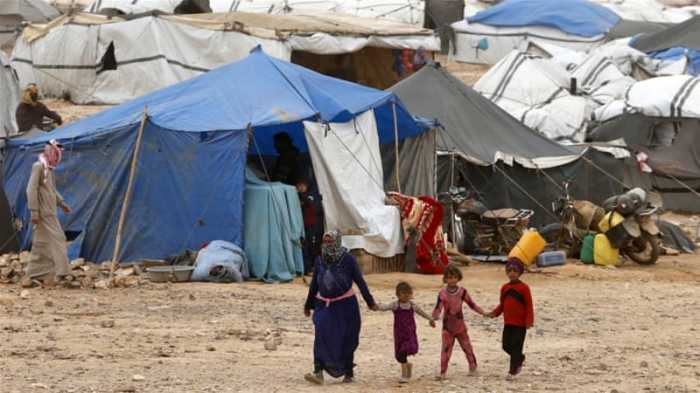Judge temporarily blocks Trump executive order on refugee refusal in lawsuit by faith-based groups

A federal judge has put a halt to an executive order that allowed local and state governments to prohibit the resettlement of refugees, siding with a coalition of faith-based charity groups.
U.S. District Court Judge Peter Messitte of the District of Maryland granted a preliminary injunction Wednesday against the executive order in response to a lawsuit filed by Church World Service, the Lutheran Immigration and Refugee Service, and HIAS, a Jewish group.
In his decision, Messitte argued that “giving states and local governments the power to consent to the resettlement of refugees … flies in the face of clear congressional intent, as expressed in the legislative history of the statute.”
CWS President, the Rev. John L. McCullough, celebrated the ruling in a statement posted to the group’s Facebook page Wednesday.
“This ruling means that newly arriving refugees won’t have to choose between being together and accessing critical services as they rebuild their lives,” McCullough wrote.
“It means that people of faith can continue to live out their calling to welcome the stranger.”
HIAS President Mark J. Hetfield also supported the decision, saying in a statement that he believed it “shows the country how this administration was wrong to attempt a state-by-state refugee ban.”
“Judge Messitte found it likely that the executive order is unlawful, and we are grateful for the clarity of this injunction. An overwhelming majority of governors and municipalities have already expressed their desire to continue welcoming refugees,” he added. "To those few who have not, we say not only is it unkind and un-American to ban refugees from your states and towns, but it is unlawful.”
Last September, President Donald Trump signed Executive Order 13888, which allowed states and local governments to opt out of resettling refugees.
“In resettling refugees into American communities, it is the policy of the United States to cooperate and consult with State and local governments, to take into account the preferences of state governments, and to provide a pathway for refugees to become self-sufficient,” stated the order.
“State and local governments are best positioned to know the resources and capacities they may or may not have available to devote to sustainable resettlement, which maximizes the likelihood refugees placed in the area will become self-sufficient and free from long-term dependence on public assistance.”
In response, the three faith-based groups filed suit last November against the administration over the executive order, being represented by the legal group International Refugee Assistance Project.
“Congress has been clear. State and local governments are to be consulted in decisions about where refugees are placed in the United States,” stated IRAP senior litigation staff attorney Melissa Keaney last year. “But the Refugee Act establishes Congress’ unmistakable intent that states and localities were given a voice but not a veto where refugees would be resettled.”
While the vast majority of state governors expressed their intention to continue accepting refugees for resettlement, Texas Gov. Greg Abbott asked to opt out.
Abbott explained in a statement that Texas “carried more than its share in assisting the refugee resettlement process and appreciates that other states are available to help with these efforts.”
Abbott’s decision garnered criticism from some Christian groups, among them more than 300 Texas-based Christian leaders who signed a letter to the governor encouraging him to change his position.




























